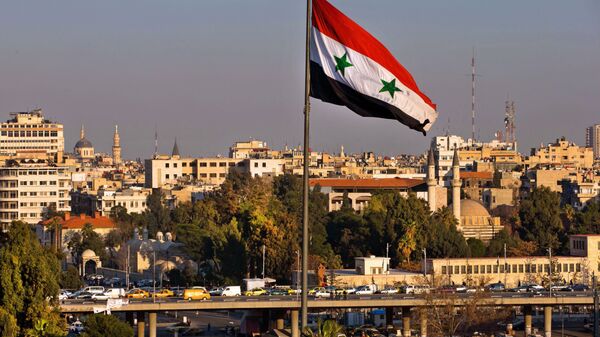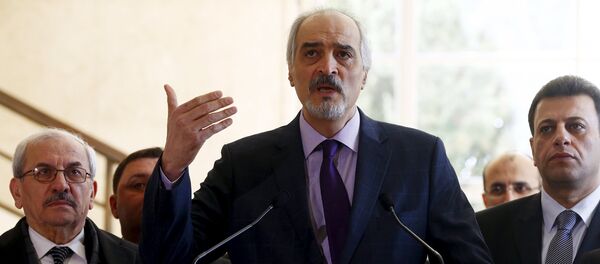"I think this is going to attempt, at the very least, to usher in a new leadership," Kara-Mustapha tells Loud & Clear host Brian Becker, referring to Syrian peace talks taking place in Geneva on Monday. "The whole point behind it is actually to render the [Syrian President Bashar al-] Assad leadership null and void.
"On this occasion, [the Syrian opposition] seem[s] to be quite willing to participate. But of course the willingness is because the international community seems to be heading toward removing or sidelining Bashar al-Assad," she adds. "This goes hand-in-hand with the federalization project, which is to leave him encircled in a very, very restricted part of Syria and then carve up the rest of the country amongst all the other parties."
While the international community appears to be increasingly accepting of the possibility of Assad’s ouster, that may not be what Syrian citizens want.
"The Syrian people have no say in this. Syrian opinion polls have consistently indicated that Bashar al-Assad is popular amongst an overwhelming majority of Syrians," Kara-Mustapha says. "But that is completely sidelined, and all we’re hearing from the international media and international governments is that Assad must go, despite what Syrians are saying."
A partition of Syria would likely include a semi-autonomous region for Syrian Kurds, but it remains unclear whether Turkey would support such a state on its border.
"It’s win on the one hand and lose on the other. Federalization would be a semi-victory because it would be a defeat for Bashar al-Assad, a major loss of his territory," Kara-Mustapha says.
"But of course by doing that they would be encouraging a Kurdish, autonomous region, and that, obviously, would be very very detrimental for the Turks because it would be encouraging for the Turkish Kurds to then go for some form of independence.
"In the long term, I think Bashar will actually find an ally in Turkey in that they would probably oppose federalization at this point. And while they won’t be in favor of Bashar remaining, at the very least they will support some maintaining of the entire integrity of Syria. At the very least to weaken the Kurdish side."
While some argue that federalization of Syria would only mean minor changes in the government structure, Kara-Mustapha disagrees.
"I think whichever way you look at it, it’s very, very detrimental and it will spell the end of the Syrian nation as we know it," she says.
"The Syrian nation is precisely built on the idea that everyone is a participant in the actual nation. You had a country where Arabs, Kurds, where Christians, where Muslims, lived side-by-side and participated in government affairs," she adds.
"If we go down this federalization project, it will entrench all these tribal elements, all these sectarian elements, and I think, not only will it spell the death nail of Syria as we know it, but it also will have incredible repercussions on the rest of the Arab world."
While Syria’s current borders may have been shaped by colonialism, a true national identity was forged in the decades that followed.
"It has been very successful, even if the starting point was very difficult. Syria, up until the 70’s, was coup after coup," she says. "And then, Hafez al-Assad came, a strong leader, and brought [the country] together, brought in women’s rights, raised the standards of education.
"It’s a very important project from which Syrians really identify."





